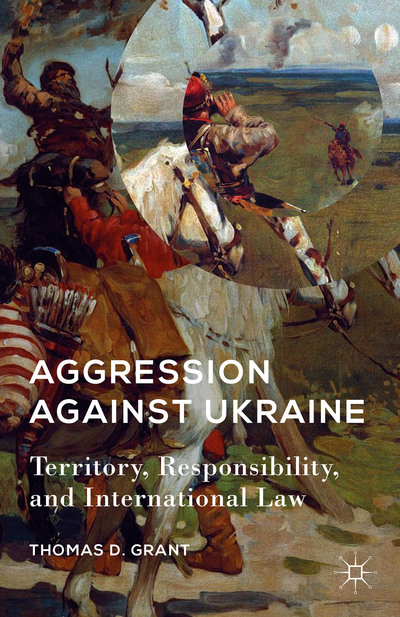Catherine MAIA
Aggression
against Ukraine marks a stunning shift. Ever since
1945 it had been understood that the borders of States must not be the object
of forcible change by other States. However, Russia has now revived long-buried
historical claims — and prosecutes them by dint of arms. The annexation of Crimea
in March 2014 and the subsequent armed incursions in eastern Ukraine under
color of separatist movements in Donetsk and Luhansk challenge not just one
State's territorial integrity, but jeopardize the general settlement on which
international law for almost three generations has rested. This is the
settlement which enabled human rights and modern institutions of international
law to flourish. Russia's domestic rejection of human rights and its new
geopolitics of territorial seizure in this light should be seen not in
isolation but as connected developments — and as a challenge to international law
and global public order at large.
PART I:
AGGRESSION AGAINST UKRAINE
1. 'Glory and Outstanding Valour' The Seizure of Crimea
2. Crimea and the Use of Force
3. Non-Recognition
1. 'Glory and Outstanding Valour' The Seizure of Crimea
2. Crimea and the Use of Force
3. Non-Recognition
PART II: THE TERRITORIAL SETTLEMENT AND INTERNATIONAL LAW
4. The Privileged Character of Boundaries and Territorial Regimes
5. Boundaries, Territory and the Obligation Not to Recognize the Unlawful Situation
6. Use of Force and Other Values
7. Boundaries, Territory and Human Rights
PART III: DOMESTIC ORDER, INTERNATIONAL ORDER AND MECHANISMS FOR CHANGE
8. The West's Interventions and Russia's Argument
Conclusion

Thomas D. GRANT, Aggression against Ukraine. Territory, Responsibility, and International Law, New York, Palgrave Macmillan, 2015 (320 pp.)
Aucun commentaire :
Enregistrer un commentaire